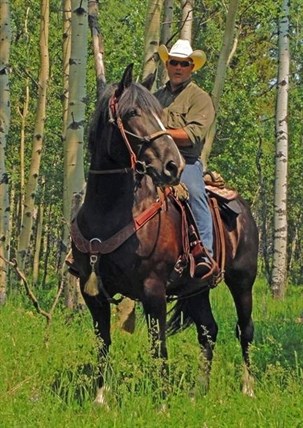
Military veteran Christian McEachern had run the gamut of counselling for post-traumatic stress when, sitting on the bank of the Columbia River during a wilderness trip in B.C., he at last found a moment’s peace.
Image Credit: THE CANADIAN PRESS/Handout
August 17, 2014 - 5:08 AM
UNDATED, - Military veteran Christian McEachern had run the gamut of counselling for post-traumatic stress when, sitting on the bank of the Columbia River during a wilderness trip in B.C., he at last found a moment's peace.
"I was starting to quickly realize while I was back outdoors that I was still capable of doing all this stuff," he said in an interview. "I was gaining more confidence by the minute as we were out. I thought, this is awesome. We really need something like this for veterans to get them out.
"Why does group therapy have to be in a clinical situation in a hospital or an OSI (operational stress injury) clinic?"
That was nine years ago. McEachern, now 44, has been out of the Canadian Forces since he was honourably discharged in 2001. He's still paying the psychological toll of intense stress from peacekeeping tours in the former Yugoslavia and Uganda. Chronic nightmares haunt his sleep.
But McEachern and a growing number of veterans are finding solace in back-to-nature programs, such as caring for horses, gardening and homestead farming. They're calling for more military support of therapies they say are a vital complement to more traditional prescription drug and counselling regimes.
"You need to literally learn how to stop and smell the roses again and really find the positives of life," McEachern said from Black Diamond, Alta., near Calgary. "It's not easy to do when you're at the bottom of a depression hole.
"But for me, the outdoors has given me positive release during the day. No matter how bad my night was, I can get up in the morning and look out and my horses are across the road."
McEachern has just trained for a new career specializing in emergency care for horses.
He'd like to raise awareness about programs such as Can Praxis, which uses equine therapy to break down communication blocks for vets and their families as they work with horses in Rocky Mountain House, Alta.
"It's a little touchy-feely still, but I'd say about three-quarters of the Canadian army is onboard and they're sending their veterans" to the privately funded program, McEachern said.
"It's not happening out west for whatever reason. The guys have been sort of denied access through the military chain of command."
Steve Critchley, co-founder of Can Praxis and a former member of the Canadian Armed Forces, said that 3rd Canadian Division, the land force command that spans western Canada, has not referred its members despite support elsewhere in the military.
"I'm 100 per cent confident that individuals who are rather reluctant to look at these programs, if they were to spend some time on the ground they'd see for themselves the true value."
National Defence did not answer requests for comment.
Stephanie Westlund, author of the new book "Field Exercises: How Veterans are Healing Themselves Through Farming and Outdoor Activities," chronicles success stories across Canada and the U.S.
"If he's grooming his horse it's easier for him to talk about his military experiences than if he's in a room with other vets," she said of former soldiers like McEachern. "It gives them another focus."
Veterans grappling with operational stress injuries tend to isolate themselves, Westlund said in an interview.
"When they're able to find ways to spend time with other veterans again ... there's something about nature and spending time outdoors together, whether you're doing farming, gardening or hiking.
"It makes it easier for them to connect with one another."
Those therapeutic benefits are getting more official attention, Westlund said.
"I think there is starting to be a shift."
Chris Brown, a 28-year-old former U.S. marine, was honourably discharged after three combat tours in Iraq and Afghanistan between 2004 and 2008.
"I was really irritable, really quick to anger," he said of his later struggles with post-traumatic stress. "I was on constant alert, in and out of states of depression."
Today, Brown is the founder and director of Growing Veterans. The not-for-profit project gives vets a chance to socialize and learn new skills on a small farm in Whatcom County in northern Washington.
Being outdoors and getting their hands in the soil offers reconnection and hope, he said.
"I came from an environment that was really destructive, really traumatic. And now we're putting seeds in the ground. We're fostering life, we're sending it to market, sustaining other people's lives.
"That shift has been really powerful for me."
Follow @suebailey on Twitter.
News from © The Canadian Press, 2014